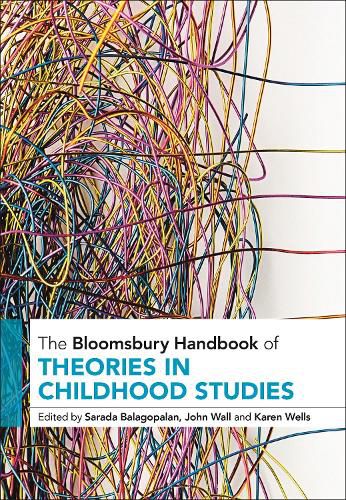Readings Newsletter
Become a Readings Member to make your shopping experience even easier.
Sign in or sign up for free!
You’re not far away from qualifying for FREE standard shipping within Australia
You’ve qualified for FREE standard shipping within Australia
The cart is loading…






The Bloomsbury Handbook of Theories in Childhood Studies brings together an international group of childhood studies scholars who work with a range of critical theories. It speaks to both scholars and students by addressing questions such as how childhoods are diversely constructed and how children's experiences can be better understood. The volume draws together a diversity of theoretical perspectives from the social sciences and humanities such as critical race studies, disability studies, posthumanism, feminism, politics, decolonialism, queer theory and postcolonialism to generate a much-needed conversation about how to move childhood studies forward as a grounded field of research. The volume is subdivided into three sections - subjectivities, relationalities, and structures - each of which addresses different but interrelated approaches to childhood studies theorization. This handbook will be an essential text not just for childhood studies researchers, but for all those interested in theorizing what childhood is, what work it does and who children are.
$9.00 standard shipping within Australia
FREE standard shipping within Australia for orders over $100.00
Express & International shipping calculated at checkout
The Bloomsbury Handbook of Theories in Childhood Studies brings together an international group of childhood studies scholars who work with a range of critical theories. It speaks to both scholars and students by addressing questions such as how childhoods are diversely constructed and how children's experiences can be better understood. The volume draws together a diversity of theoretical perspectives from the social sciences and humanities such as critical race studies, disability studies, posthumanism, feminism, politics, decolonialism, queer theory and postcolonialism to generate a much-needed conversation about how to move childhood studies forward as a grounded field of research. The volume is subdivided into three sections - subjectivities, relationalities, and structures - each of which addresses different but interrelated approaches to childhood studies theorization. This handbook will be an essential text not just for childhood studies researchers, but for all those interested in theorizing what childhood is, what work it does and who children are.